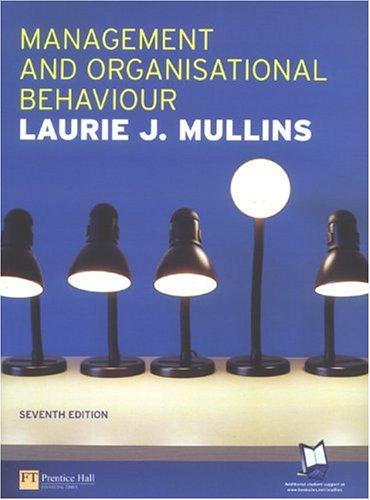Question
Summary: The Commercial Space Race: Who's Flying Highest? Abstract What was once a dream of science-fiction is on the verge of becoming a reality: commercial
Summary:
The Commercial Space Race: Who's Flying Highest?
Abstract
What was once a dream of science-fiction is on the verge of becoming a reality: commercial space travel. Rocket companies led by three of the world's richest men are competing to lead the market in private space traveland to pick up lucrative government contracts along the way. The new ventures by Elon Musk, Jeff Bezos, and Richard Branson are not without controversy, however, as critics urge the space-bound billionaires to direct their enormous wealth toward more pressing issues here on Earth, such as developing green tech in the face of the oncoming climate crisis. Students are asked to discuss these companies and their objectives within the context of the criticism surrounding them.
Students are expected to apply the material learned in this course to discuss the space race and its objectives.
The Issue
Billionaires Elon Musk, Jeff Bezos, and Richard Branson have all launched competing rocket companies aimed at privatizing space travel, albeit with slightlydifferent approaches and goals. Bezos and Branson have touted the goal of making space more accessible, at least to the extremely wealthyboth plan to launch tourism services that will take paying customers to the edge of space, to which end Bezos and Branson have both now participated in manned flights aboard their companies' rockets. Musk, meanwhile, has stated his goal is ultimately "making life multiplanetary," and hopes to use his company SpaceX toestablish a human presence on Mars.
Musk has generally been seen as the frontrunner in this privatized space race; SpaceXtook astronauts to spacebefore either Bezos's Blue Origin or Branson's Virgin Galactic flights. SpaceX also recently achieved another significant victory over its rivals: NASA chose the company as the recipient of aUSD 2.9 billion contractto build the next spacecraft lander for an upcoming Moon mission, a decision Jeff Bezos's Blue Origincontestedbut which the Government Accountability Office said will stand.
Why Is It News?
The recent fight for a NASA contract has fueled speculation over these entrepreneurs' motives and of the true objective of the sort of space travel they promise. Criticsarguethat the true motive is not space exploration, but lucrative government contractsmodern rocket technology and the space race of the 20th century were, after all, enabled and funded by suchmilitaryand government contracts. And despite rhetoric about making space more accessible and about breaking through the limits of human achievement, this is really a niche market for a select few very wealthy individuals.
Furthermore, critics say these billionaires could use their exorbitant wealth and resources to combat existing problems here on Earth. Contributing to the criticism is the fact that the rocket launches areadding to pollution, producing up to 300 tons of carbon dioxide. With theplanet burningand a pandemic ravaging its population,critics wonderwhether space travel should really be a priority for these billionaires.
Discussion Questions
1. Do you think there's a current winner of the "space race" so far? Why?
2. What do you think is the objective of commercial space travel companies?
3. For marketing purposes, we need to understand why people travel. What is the motivation for space tourism?
Step by Step Solution
There are 3 Steps involved in it
Step: 1
As of now it can be argued that Elon Musks SpaceX is leading the commercial space race SpaceX has ac...
Get Instant Access to Expert-Tailored Solutions
See step-by-step solutions with expert insights and AI powered tools for academic success
Step: 2

Step: 3

Ace Your Homework with AI
Get the answers you need in no time with our AI-driven, step-by-step assistance
Get Started


